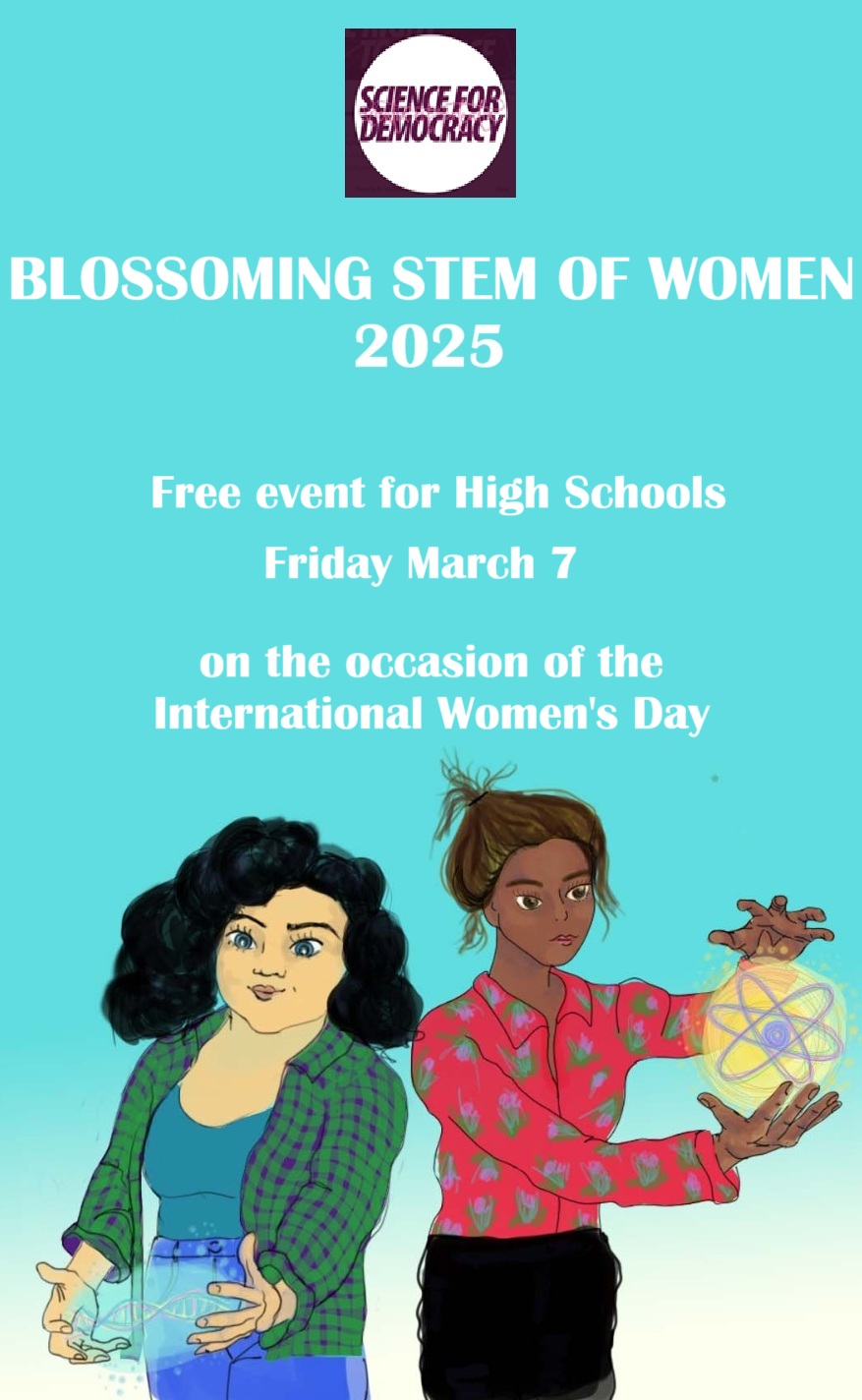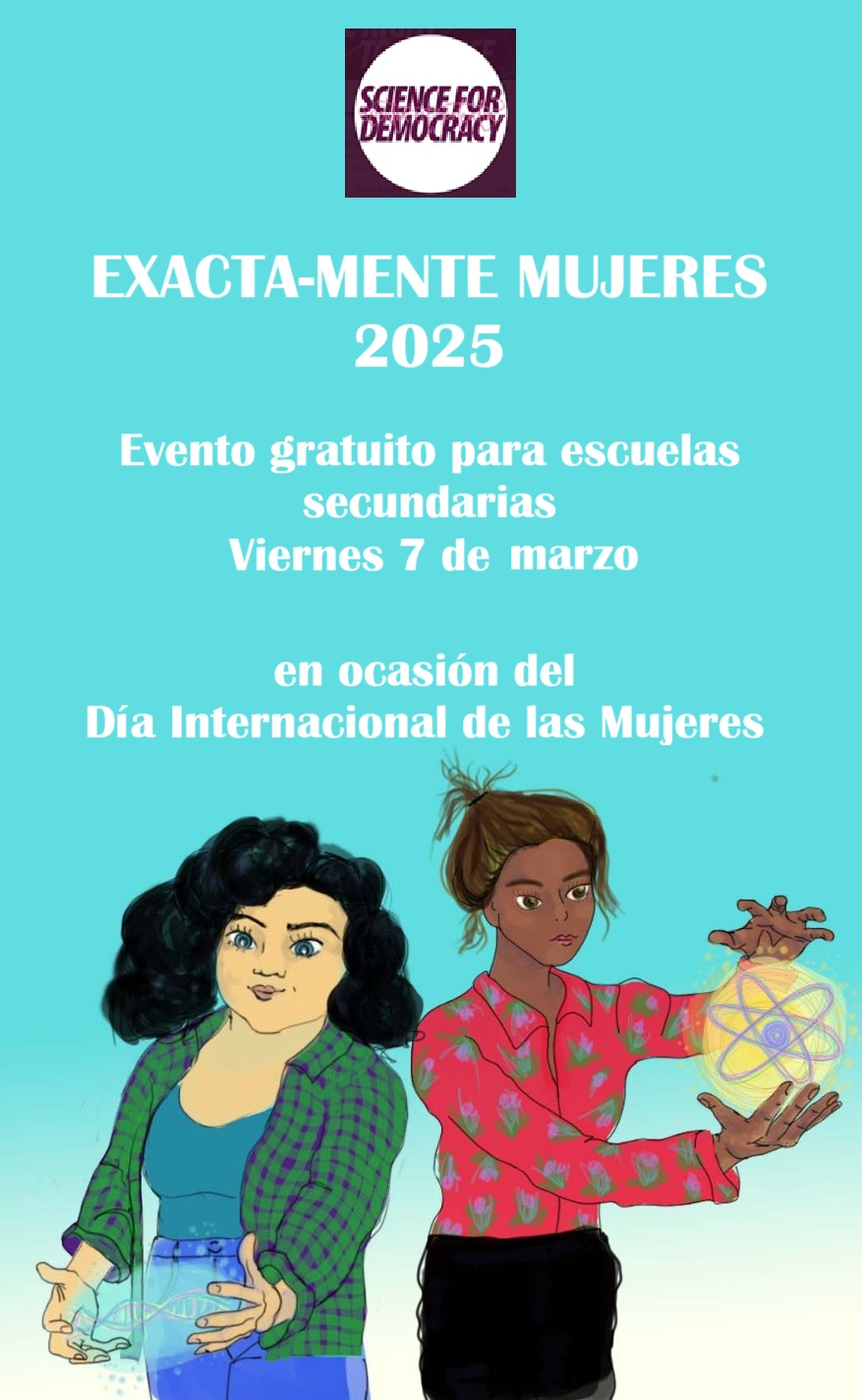
With this initiative, Science for Democracy would like to help teenagers overcome stereotypes about gender, sciences, and jobs and to contribute to the social change required to reach the objectives set by the United Nations in matters of gender equality.
WHEN: Friday, March 7th, for International Women’s Day. The event will take place twice. You can join us in one or both events depending on the different time zones and the preferred language. Please check the tables below:
Please check the tables below:
English:

Spanish:

If your Country is not included in the above lists, you can use this time zone converter (remember to set the day to 7th March): https://www.worldtimebuddy.com/
DURATION: 1 hour
WHERE: Online, Google Meet platform
MAIN OBJECTIVES: To demonstrate to students through real-life experiences, that:
- Despite cultural stereotypes, many women choose university careers in natural sciences, mathematics, computer science, and engineering, and they are successful in their studies;
- An education in these fields can open doors to a wide variety of different jobs, more than it is usually imagined.
PROGRAM: Our speakers are professional women, from different countries, with an education in the STEM fields who work in several areas: foundations, finance and banks, international organizations, R&D for private companies, research in public universities, and science communication.
After a brief introduction about gender and science stereotypes, our speakers will share their life experience in the STEM world including the difficulties they encountered, their achievements and successes, and the type of job they do.
Participants will have the time to ask speakers questions based on their own doubts, curiosities, and interests.
HOW TO REGISTER: By filling this online form before March 3rd. For any kind of query write to Francesca Battista, battistafrancesca@gmail.com
OUR MOTIVATIONS: Gender equality for all areas of social life is one of the Sustainable Development Goals established by the United Nations in 2015. In 2019, the World Economic Forum estimated that it would take at least 257 years to close the gender economic gap. One of the reasons for the existence of this gap is that women are systematically underrepresented in emerging roles, especially in the areas related to sciences and technology.
While in the last decades, many countries have taken action to promote the participation of women in sciences, there is still a limited number of girls choosing these disciplines. Ersilia Vaudo, Chief Diversity Officer at the European Space Agency (ESA), states in the book Così san tutt3. Diritto alla Scienza, istruzioni per l’uso (Fandango Libri, 2021) that the reason for this
trend is not “a mere question of intrinsic capabilities. A study recently published in Nature shows that children do not show gender differences in quantitative and mathematical abilities between 6 months and 8 years of age. Differences appear later, and their root is mostly to be found in social and cultural factors.”
We hope you will join us!


